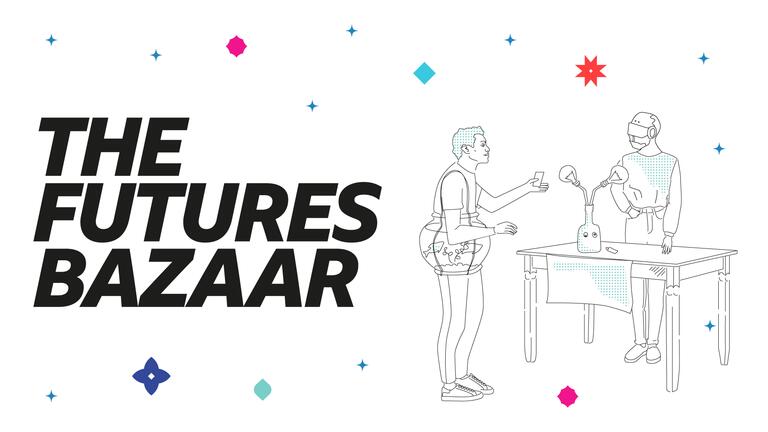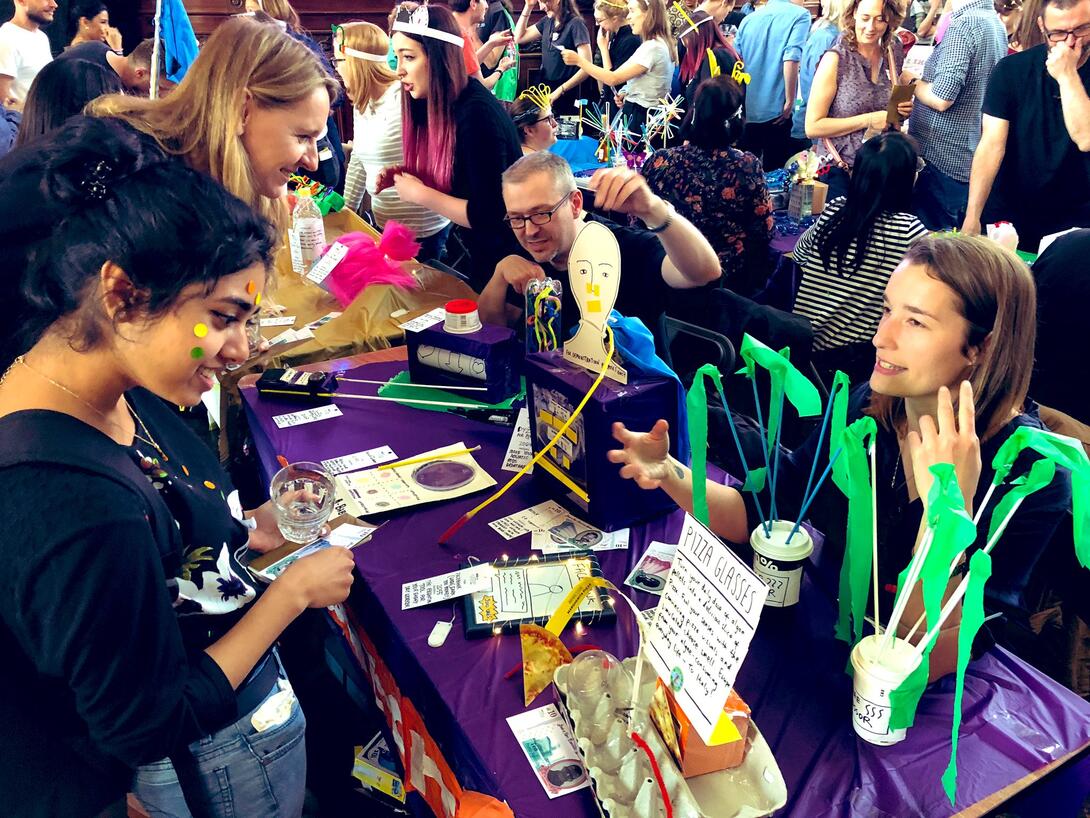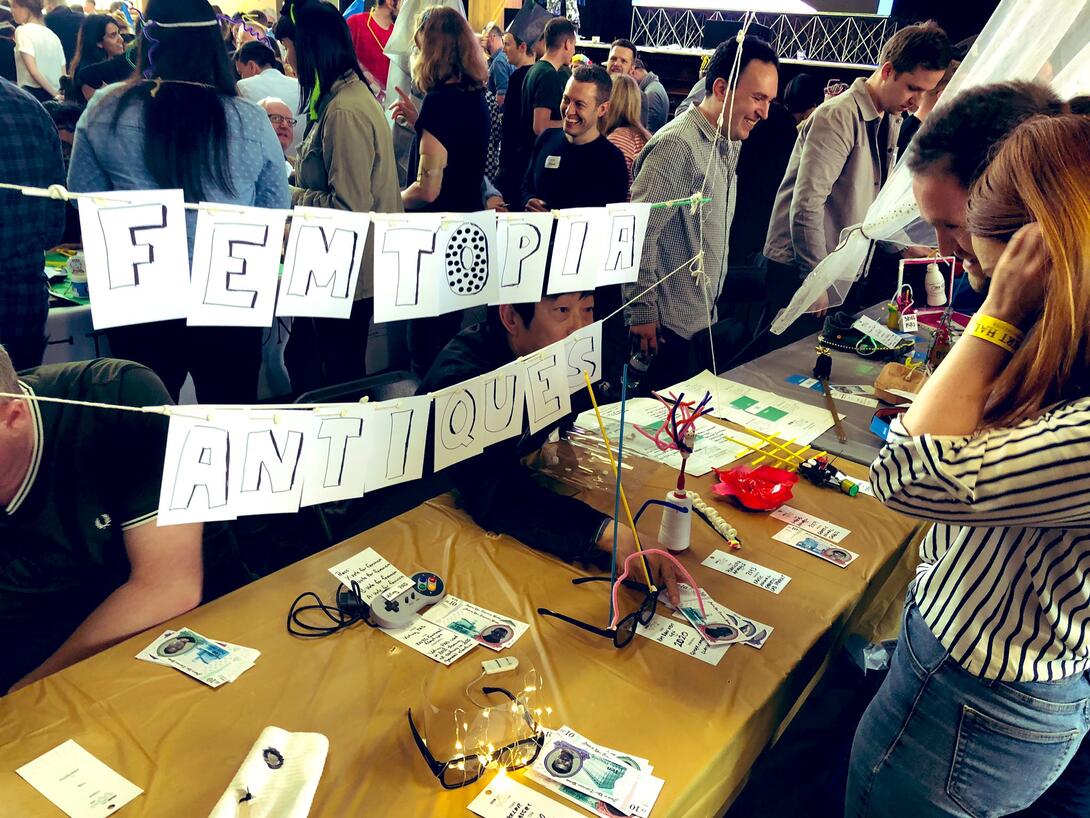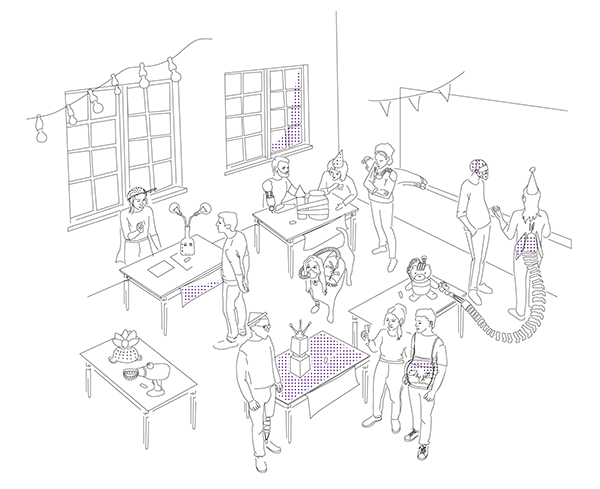BBC and Situation Lab Release "The Futures Bazaar"


Picture the future. What do you see? Now think of the items in your home. What could they turn into? This is the starting point for Futures Bazaar, a wildly fun and creative idea generation workshop. “The Futures Bazaar is part experiential futures, part participatory design. It belongs within and owes a lot to both traditions,” said Design Futurist and Associate Professor at Carnegie Mellon University's School of Design, Stuart Candy. Candy, alongside his colleague and fellow futurist Filippo Cuttica, created the Futures Bazaar workshop and toolkit. “[Futures Bazaar] can be seen as the latest step in a movement that's become prominent over the past decade, where the worlds of design and futures or foresight have been coming together.”
The project began with two separate pilot events: one in partnership with the British Broadcasting Company (BBC), and the other with students here at the School of Design. In 2019, roughly 240 people gathered in an old concert hall in Manchester, UK. Participants were told to bring in a variety of junk from their home – things that would otherwise be thrown away. Step by step, Candy and Cuttica led them through the collaborative worldbuilding activity. Teams collected the junk objects and transformed them into innovations of a distant future. Rows of tables were covered with artifacts, new from old. “It was intended as just a one-off”, said Candy. But when he and Cuttica saw the excitement and energy from the first event, they both thought it could be taken further – and turned into a free, shareable version.

Covid-19 struck after the first two pilots. Though it halted their live gatherings, Candy and Cuttica realized that the need for shared imaginative spaces grew. “As time went on, we came to think of this project as a potential way to act on some of what to us are actually important lessons coming out of the pandemic: our collective relationship to the future really needs to be reset,” said Candy. “And as part of that, public imagination desperately needs support.” They began work on transforming these events into the Futures Bazaar toolkit that could be led anywhere, by anyone. And now, anyone is capable of setting up a Futures Bazaar event, through a free, downloadable kit.
“Our hope is that this toolkit finds its way to all sorts of people who might like to run a Futures Bazaar, wherever they are,” said Candy. “Whether it's part of a class, or a creative studio retreat, or a design meetup, or a government agency away day, or a maker festival, or whatever else –– the more people who get to try this out, the better. Teambuilding through worldbuilding! What better way to get to know the people you work, study, or share a community with?”

In these workshops, participants work together in an energetic atmosphere, contributing, trading, and collecting objects. People work in tandem to imagine the future without limits, and how items and their shape could take on new life and meaning. “It's about existing designed objects,” said Candy. “More specifically, mundane household artifacts, to hack and reimagine them as something else –– something playful, funny, weird, or even extraordinary.” Since the workshop has a craft element, it creates a cycle where form inspires thought and ideas in turn change the object.
Any item can bring up a range of associations through its shape, use, color, and other qualities. When putting this together with participants who have diverse experiences, a wild, magical future is born. Candy recalls, “people have made future artifacts for their stalls out of old slippers and 3D glasses, product packaging, even items of food. One thing we saw very quickly is that any and all objects, whatever the material or form factor, can be endlessly reimagined by motivated participants using this framework.”

“We think the capacity to imagine is key to shaping the futures,” said Candy, “and this kind of collective play is key to imagination.” The toolkit activity serves to generate stories and social connection, as well as encourage creative thought and craft. “And then a third layer,” said Candy, “in the longer run perhaps, is for it to help in a modest way to encourage a different kind of attitude towards the future – one less scared or uncertain, and instead more playful and fun.”
If you’re interested in hosting your own Futures Bazaar, you can download the materials here.